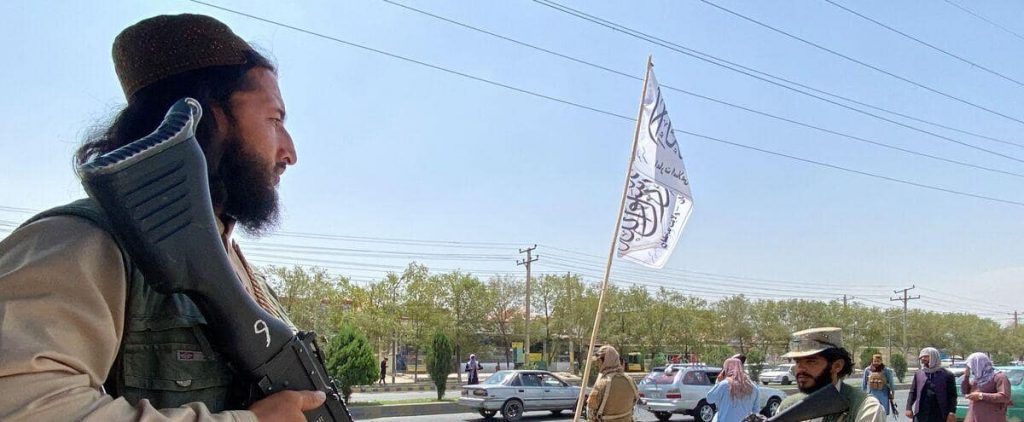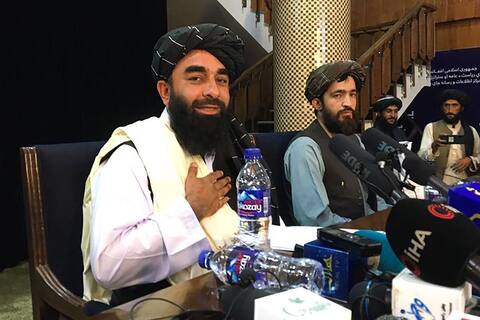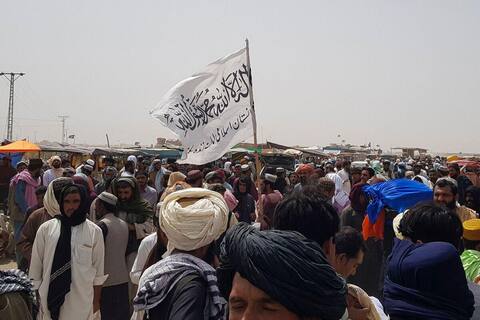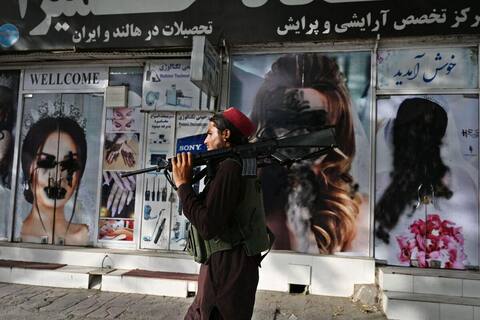
Kabul, Afghanistan | Laughing at reporters, posing for “selfies” and sitting for a TV interview with a female journalist, the Taliban seem to have embarked on a massive media seduction operation to convince Afghans and the world that they have changed.
Also read: Under the feet of the Taliban, El Dorado is a potential mineral
Also read: Sharia, Islamic law with variable geometry
Also read: The real reasons for the American defeat
But not everyone is convinced. Afghans, especially women and religious minorities, recalled the brutal fundamentalist regime they established when they were in power between 1996 and 2001, and tens of thousands died in their uprising over the next two decades.
What does the Taliban promise?
“There is no difference between ideology and belief,” one of their spokesmen, Jabihullah Mujahid, told a news conference in Kabul on Tuesday.
But “in terms of experience, maturity and insight, without a doubt, there are a lot of differences,” he said.
He then listed a long list of promises: amnesty for all, rights for women, education and the right to work, an independent and free media and an inclusive government.
Another Taliban official sat down with a female journalist for a face-to-face interview.
The Taliban have also promised to be part of the international community and no longer use Afghan soil for attacks abroad. The United States, which led the international coalition, ousted al Qaeda leader Osama bin Laden in 2001 for refusing to hand him over.
Above all, they sent delegates to a ceremony to mark Ashura, one of the major religious monuments of the Shia sect, which Sunni extremist groups, including themselves, consider to be religious.
The Taliban have been giving such assurances for months. But behind these simple comments, they are silent when it comes to going into details.
All of these commitments also come with one caveat: everything has to be done in accordance with their own interpretation of Islamic law.
Why do they not inspire faith?
The harshest interpretation of Sharia law is that no one has forgotten the excesses that led them under their previous rule.
All forms of entertainment (music, television …) were banned, thieves were beheaded, murderers were publicly hanged, women could not work or study, and those who committed crimes such as prostitution were whipped.
The entire international community condemned the massacre of members of the Shia community, especially civilians, who remained a special target of their attacks even after 2001.
This week, the Taliban also promised a general amnesty when they entered Kabul in 1996. “We do not believe in any kind of revenge,” their founder Mullah Omar told residents of the capital.
Two days later, they hanged former President Najibullah and hung his body on a lamppost.
While the public face of the Taliban is trying to show a lukewarm face, their fighting fighters continue to hunt down journalists in some parts of the country and accuse women of not being allowed into universities.
In Kabul, pictures of women in front of shops were vandalized.
Also read: Thousands of Afghans still stranded at Kabul airport, accused of blocking Taliban access
And in rural areas and small towns, they are also accused of abusing the population.
“They are better at public relations now (…) They speak English and address the international media,” said Pastana Durrani, who runs an NGO dedicated to women’s education in Kandahar (South). Channel four channel.
“What they say at a press conference and what they do on the field (…) are two different things,” she underlined. “The serious fact is that they have not changed. They are all the same.”
Do Afghans and the world trust their promises?
Despite months of campaigning to win the goodwill of the international community and reassure their compatriots, the Taliban still have not persuaded them.
Panicked, tens of thousands of people have been trying to flee Afghanistan since Sunday, arriving at Kabul airport in utter despair.
Women have since refrained from taking to the streets. Journalists and people who have worked for international organizations have been unable to leave the country, trembling with fear of retaliation.
China, Russia, Turkey and Iran have sent open signals to the Taliban, but no one has identified them.
British Prime Minister Boris Johnson warned the Taliban on Wednesday that they would be “judged by deeds, not by words”, a position shared by Germany, the United States and France.









More Stories
Allegations of corruption Qatar warns of ‘negative impact’ of European measures
USA: Famous “Hollywood cat” euthanized in Los Angeles
The campaigner who called for the shooting of Ukrainian children has not been charged